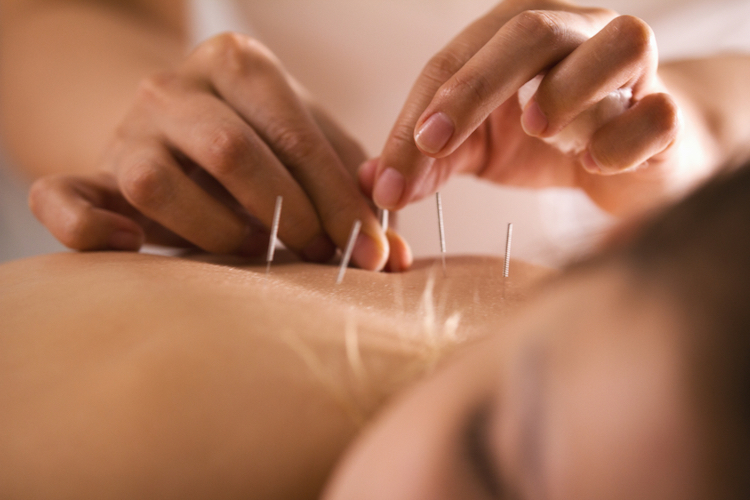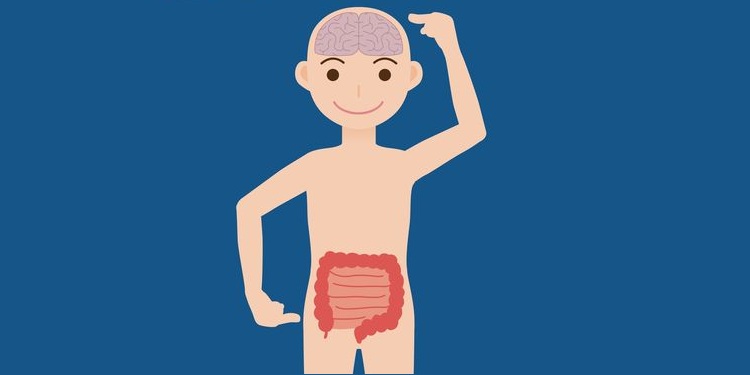What Is Traditional Chinese Medicine And How Does It Work?
If you’ve spent any time at all in the alternative medicine sphere, you may have already heard of TCM — which stands for traditional Chinese medicine. TCM is a method of medical practice that dates back more than a thousand years, so it’s obviously something that’s stood the test of time- to enough of a degree.
But what really is TCM? When you think of traditional Chinese medicine, do you think of ground-up tiger bones, and ladies sticking you with needles?
Well, there’s a bit of mysticism that’s crept into TCM over the years— nobody’s going to tell you to cure your pneumonia by climbing a mountain to find a rare herb that only grows in the moonlight. I was a student of TCM in Shanghai, and I’m here to tell you that TCM is actually a robust system of medicinal practice that might just have something to contribute to your long-term health!

What is Traditional Chinese Medicine?
Traditional Chinese medicine is based on the idea that the entire body is connected. Sure, your arm is definitely connected to your shoulder, and you can probably even understand how someone could say that your arm is (indirectly, I hope!) connected to your foot.
In Western medicine (which is most likely the kind of medical advice you seek when you go to the doctor), if you say, “Hey doc, my arm hurts,” your doctor is probably going to look for problems with your arm. Right? Traditional Chinese medicine views this a little differently. A TCM practitioner might start looking for problems in your arm, but they acknowledge that the pain in your arm could be coming from a malfunction anywhere— even your toes. Your whole body is connected.
That means that TCM focuses on what we call “holistic well-being.” You have to take care of your whole body, not just treat local symptoms. TCM doctors have lots of ways of helping you to do this, including:
- Acupuncture: That’s the one with the needles— but don’t worry, you don’t really even feel them!
- Acupressure: Pinpointed massage that targets the same places that acupuncture does, just without needles.
- Moxibustion: A type of acupuncture where a small wad of herbs is put on top of the needle and lit on fire. The fire’s not dangerous (it goes out right away), and it warms the needle. It’s very relaxing!
- Fire cupping: This is a type of suction massage that’s not nearly as scary as it sounds! It’s my absolute favorite element of TCM. A glass cup is held over a small fire, which burns up the oxygen inside. That creates suction, so when the cup is placed on your skin, it sticks and gives you a massage. Fire cupping is the cause of the octopus-sucker-like marks that many Olympic athletes show up on the field with because it relieves muscle tension.
- Taiji: That’s the exercise that most Americans know as tai chi. Slow, calming— almost like yoga.
- Qigong: A little bit more rigorous version of tai chi.
- Health cultivation: A broad term for lifestyle planning to improve one’s health.
- Diet therapy: In America, this is usually called nutritional counseling. It helps you plan for a healthy eating lifestyle!
- Herbal medicine: We’ve got lots of herbal recommendations here on Healevate for teas, lotions, and cooking, and TCM encourages the same thing.
These are just a few of the ways that TCM encourages you to take a holistic approach to your health. And because TCM teaches that everything in the body is connected, that’s why you’ll hear about acupuncturists doing things like putting needles in people’s hands to treat stomach upset.
Who Benefits from TCM?
Almost everybody can find some part of TCM that really works for them. If you’re pregnant, breastfeeding, or have cancer, TCM can still work for you (and is often an important part of the process!), but definitely talk to your doctor first.
Some parts of TCM, like herbal remedies, can also interfere with drugs you may be taking, so it’s always best to talk to a professional before you go ahead and start with any traditional Chinese remedies.
If you’ve got the green light to try out TCM, acupressure and tai chi are great places to start. Lots of people are scared off by the thought of needles in acupuncture (you really can barely feel them— I promise!), so acupressure is a good middle ground.
People who try out TCM often talk most about their increased alertness, and in my own experience, TCM has done two main things for me: increased my energy levels and majorly boosted my immune system. Since incorporating TCM into my lifestyle, I haven’t had a single illness (even a cold!) for years.

Benefits of TCM
As I mentioned before, increased energy and a boosted immune system are two of the most common side effects of including traditional Chinese medicine in your lifestyle. However, there are lots of other benefits too.
Because TCM is an entire medical philosophy, the benefits are almost limitless and are based on what’s making you feel ill. If your muscles ache and you receive fire cupping, you can expect reduced muscle tension, lower stress levels, and majorly improved circulation.
Have digestive issues that won’t go away? Try herbal remedies and a bit of acupuncture to calm the neurological response from your brain that makes you feel like throwing up. These treatments will also increase nutrients to your intestines, helping them function optimally.
TCM is customized to each individual patient; even two people who both come in with headaches will likely walk out with two separate treatment regimens. That means that the best way to see how it will work for you is to try it out yourself!

How to Find a Good TCM Doctor
When you think of some of the aspects of TCM, you may be thinking, “Oh boy, I’d better be able to trust my doctor if they’re going to be handling fire and needles around me!”
You’d be right. Finding a good TCM practitioner is a big deal, not only for your safety but so that the treatments you receive are expertly tailored to your individual situation. Most states have certifications for practitioners, so check that the doctor you are considering is certified in your state.
Seek out practitioners who also have an understanding of Western medicine. The best TCM doctors know how to make Eastern and Western medicine work together. Sometimes, you really do just need to take some medicine more than you need acupuncture, and a good practitioner will recognize that.
For hands-on treatments in particular (like acupuncture and fire cupping), make sure the doctor uses sterilized equipment, and in the case of needles, single-use tools.
Chat with your doctor! Ask where they got their experience from and how long they’ve been doing this. One of the most important factors is your gut feeling. It’s there for a reason, so trust it!
Precautions Against Traditional Chinese Medicine
As you can probably tell, I’m a proponent of TCM. I use it myself, and I wouldn’t recommend it if I thought it was a waste of time. However, there are a few things you need to know.
Bruising can happen. If you receive acupressure, acupuncture, or fire cupping, don’t panic if you notice a bruise. Sometimes, acupuncture may nick a tiny vein, or fire cupping may give you a bruise-like suction mark. However, if you bruise excessively, speak to your doctor about it. This may be an indication of an underlying blood clotting issue.
TCM is only the start. I’m not saying TCM is the solution for everything. If you have a serious illness, like cancer, a tumor, or a degenerative disease, seeking TCM should be just a part of the treatment you consider. TCM focuses on giving your body the tools it needs to heal itself, but sometimes curing a sickness takes some more outside help.
TCM is not a home remedy. Remember— the doctors who practice TCM have gone through medical school, just like Western doctors. Never try acupuncture, herbal remedies, or other treatments by yourself or on yourself. Leave it to someone who’s received certification. On the same note, let your doctor decide which TCM supplements you should buy. Low-quality supplements parading as “TCM-friendly” are common but may be full of low-grade ingredients and toxins like heavy metals.
Summary
TCM is a great option to consider if you want to bolster your body’s ability to take care of itself. Plus, experiencing a real traditional Chinese medicine treatment is an experience in and of itself. Break out of your shell and try something new! Your body will thank you for it.
